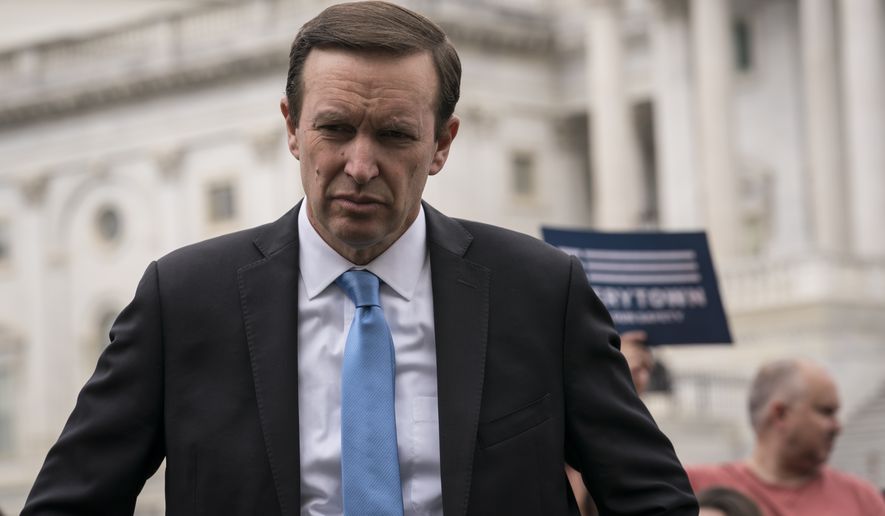Democrats are warming to including school security measures in a compromise gun bill, viewing the concession as potentially key to clinching a deal with Republicans.
Sen. Chris Murphy, a Connecticut Democrat leading bipartisan talks on the topic, said that nothing should be left off the table when looking at ways to prevent mass shootings.
“I’m willing to vote for some things that frankly make me uncomfortable if Republicans will vote to tighten up the nation’s firearms,” he said.
Mr. Murphy said that included putting more money toward bolstering security at America’s schools.
The GOP proposals are still in the formative stages. One proposal floated is to streamline the approval process for military veterans to serve as school safety officers.
The Democrats’ openness to hardening school security marks a big shift. President Biden and Democrats initially balked at the idea, arguing that it would not prevent mass shootings such as the recent tragedy in Uvalde, Texas, that left 19 children and 2 adults dead.
“Hardening schools would have done nothing to prevent this shooting,” Senate Majority Leader Charles E. Schumer, New York Democrat, said shortly after the incident. “In fact, there were guards and police officers already at the school yesterday when the shooter showed up. … The shooter got past all of them with two assault weapons that he purchased.”
Mr. Schumer and other Democrats have long claimed that the only solution to mass shootings is tougher gun-control laws. That rigid stance has faltered in recent days.
With the Senate split 50-50 between the parties, Democrats need at least 10 Republican votes for a gun bill to clear the 60-vote threshold for legislation to survive in the chamber. At the moment, there are not 10 Senate Republicans willing to back an ambitious gun control measure such as banning military-style rifles or “assault weapons.”
“We’re talking about common sense, targeted reforms that are responsive to the tragedies in Uvalde and elsewhere,” said Sen. John Cornyn, a Texas Republican. “If our schools need more resources to harden their infrastructure, evaluate their physical security measures and make necessary improvements, that’s something we can agree on and something we need to do.”
Mr. Murphy and Mr. Cornyn are spearheading the gun talks. The discussions have centered on incremental changes to the background check system for gun purchases and federal incentives for states to adopt “red flag” laws that allow authorities to confiscate firearms from people whom a court deems dangerous.
“We’re not talking about banning a category of weapons across the board, a ban [on] certain high capacity [gun] magazines or changing the background check system by adding additional disqualifying items,” said Mr. Cornyn. “If we’re actually serious about finding common ground and building consensus, those sorts of things will stand no chance of passing the Senate.”
House Democrats, however, are not looking for a bipartisan deal.
Speaker Nancy Pelosi, California Democrat, scheduled votes this week on a package of gun-control measures that will be dead on arrival in the Senate.
Named the Protecting Our Kids Act, the legislation would raise the minimum age required to purchase a semi-automatic rifle from 18 to 21, restrict ammunition magazine capacity to no more than 10 bullets and require existing bump stocks to be registered, while banning the sale of new ones for civilian use.
• Haris Alic can be reached at halic@washingtontimes.com.




Please read our comment policy before commenting.